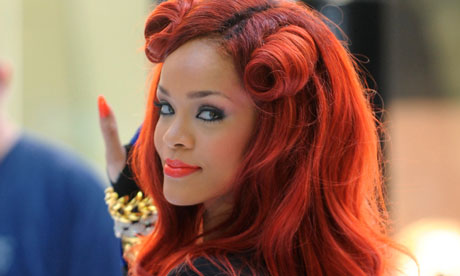Women in Hip Hop Lyrics
I found this brilliant video of an interview between singer, Drake and an interviewer known as Katie Courin. She asks Drake about the way hip-hop lyrics demean women and describe them. I thought that Drake's response was very interesting!
He defends the hip-hop lyrics by explaining that it's simply humour and mostly about "the way you say it".
I also found an article that discussed hip-hop lyrics and how they might not always be demeaning to women.
"Many hip hop artists do exploit women of color and many song lyrics objectify and disrespect women, negatively influencing young women.
But, I think it’s all about perspective. If one is focused, hip hop can have a positive impact on one’s behavior, and the poetry of hip hop can teach one about life. For example, Tupac Shakur and Nas are hip hop legends. Their song lyrics can have a positive impact on the lives of many young women of color. In “I can,” Nas encourages positive outcomes for young students. The song promotes self-confidence, optimistic thinking, and self-appreciation. In “Keep ya head up,” Tupac Shakur promotes valuing women, rather than exploiting them. “I wonder why we take from our women, why we rape our women? Do we hate our women? I think it's time to kill for our women, time to heal our women, be real to our women.” Instead of trashing women, Tupac provides a message of hope to young women who are struggling" - http://ealert.mysistahs.org/features/about_hiphop.htm
But, I think it’s all about perspective. If one is focused, hip hop can have a positive impact on one’s behavior, and the poetry of hip hop can teach one about life. For example, Tupac Shakur and Nas are hip hop legends. Their song lyrics can have a positive impact on the lives of many young women of color. In “I can,” Nas encourages positive outcomes for young students. The song promotes self-confidence, optimistic thinking, and self-appreciation. In “Keep ya head up,” Tupac Shakur promotes valuing women, rather than exploiting them. “I wonder why we take from our women, why we rape our women? Do we hate our women? I think it's time to kill for our women, time to heal our women, be real to our women.” Instead of trashing women, Tupac provides a message of hope to young women who are struggling" - http://ealert.mysistahs.org/features/about_hiphop.htm
The writer explained that the lyrics in hip-hop videos are not always demeaning to women and also gave a very good example of a music video. Here's a link to the video of Tupac's 'I Can'
I also found this useful article that discussed sexualisation in the lyrics of music during the 60s. I thought that I might be useful if I should decided to research deeper into the meaning of lyrics in hip-hop songs.
"Since music videos didn’t really start to exist until MTV came out in the 1980s, sexualization in songs was basically wrapped up in the lyrics. Even in songs that have blessed the world with their very existence and are beloved by millions, sexualization shines through:
“Well she was just seventeen/And you know what I mean/And the way she looked was way beyond compare”
“I Saw Her Standing There”, The Beatles
“I Saw Her Standing There”, The Beatles
“It was an itsy-bitsy teenie-weenie yellow polka dot bikini that she wore for the first time today”
“Itsy Bitsy Teenie Weenie Yellow Polka Dot Bikini”, Brian Hyland
“Itsy Bitsy Teenie Weenie Yellow Polka Dot Bikini”, Brian Hyland
“(Why don’t you come out) with your red dress on
(Come out) Mmm, you look so fine
(Come out) Move it nice and easy
Girl, you make me lose my mind”
“Sherry”, The Four Seasons
(Come out) Mmm, you look so fine
(Come out) Move it nice and easy
Girl, you make me lose my mind”
“Sherry”, The Four Seasons
“Some like ‘em fat, some like ‘em tall
Some like ‘em short, skinny legs and all
I like ‘em all, huh, I like ‘em proud”
“Mother Popcorn”, James Brown
Some like ‘em short, skinny legs and all
I like ‘em all, huh, I like ‘em proud”
“Mother Popcorn”, James Brown
There’s also the ongoing idea that women are owned by men, or should be:
“When I saw you walking down the street
I said that’s a kind of girl I’d like to meet
She’s so pretty, Lord she’s fine
I’m gonna make her mine, all mine”
“Hey! Baby”, Bruce Channel
I said that’s a kind of girl I’d like to meet
She’s so pretty, Lord she’s fine
I’m gonna make her mine, all mine”
“Hey! Baby”, Bruce Channel
(This song also encourages street harassment, a practice that is still looked upon as socially acceptable. Think about it: men driving by a group of women and honking? It happens a lot more than we realize).
I could go on to list a thousand more songs from the 1960s that objectify women, but I have a word count, and I think you get the picture. The fact of the matter is, if you’re looking at songs about women that came out in the ‘60s, you’re going to get a heck of a lot more that talk about how pretty a girl is than how smart or strong she is".
